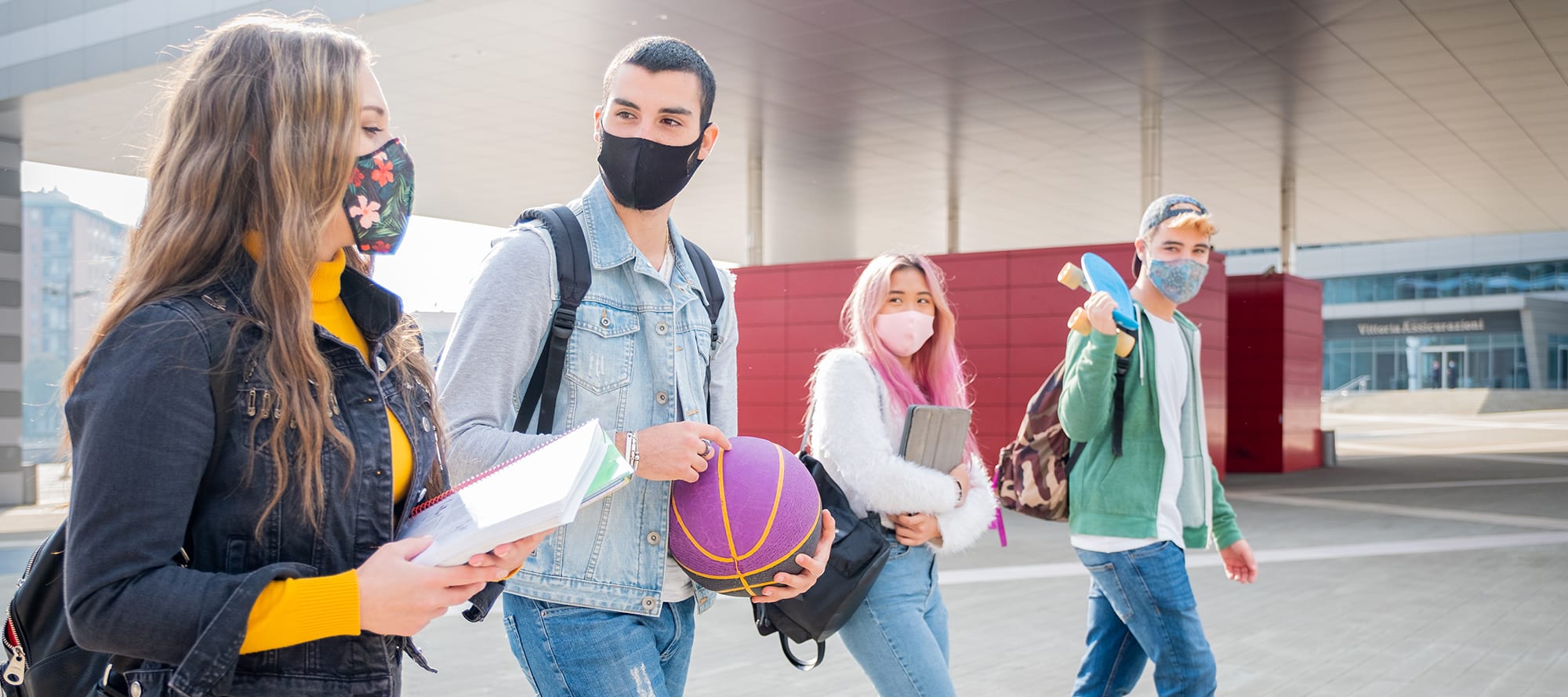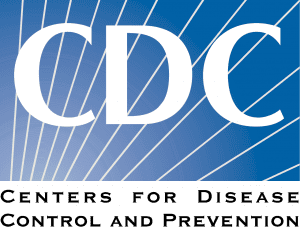- Characteristics of COVID-19 Cases and Outbreaks at Child Care Facilities — District of Columbia, July–December 2020
COVID-19 cases reported at child care facilities are correlated with level of community transmission. Among 469 child care facilities in the District of Columbia, 23.9% reported at least one COVID-19 case, and 5.8% reported outbreak-associated cases during July 1–December 31, 2020. Among 319 cases, approximately one half were among teachers or staff members. Outbreak risk was increased in facilities operating <3 years, with symptomatic persons who sought testing ≥3 days after symptom onset, or with asymptomatic cases.Implementation and maintenance of multiple prevention strategies are important to reduce SARS-CoV-2 transmission in child care facilities and to facilitate a timely public health response to prevent outbreaks.
- Risk of clinical sequelae after the acute phase of SARS-CoV-2 infection: retrospective cohort study
Aim of this study was to evaluate the excess risk and relative hazards for developing incident clinical sequelae after the acute phase of SARS-CoV-2 infection in adults aged 18-65. Three merged data sources from a large United States health plan: a large national administrative claims database, an outpatient laboratory testing database, and an inpatient hospital admissions database. Individuals aged 18-65 with continuous enrollment in the health plan from January 2019 to the date of a diagnosis of SARS-CoV-2 infection. Three comparator groups, matched by propensity score, to individuals infected with SARS-CoV-2: a 2020 comparator group, an historical 2019 comparator group, and an historical comparator group with viral lower respiratory tract illness. More than 50 clinical sequelae after the acute phase of SARS-CoV-2 infection (defined as the date of first SARS-CoV-2 diagnosis (index date) plus 21 days) were identified using ICD-10 (international classification of diseases, 10th revision) codes. Excess risk in the four months after acute infection and hazard ratios with Bonferroni corrected 95% confidence intervals were calculated. 14% of adults aged ≤65 who were infected with SARS-CoV-2 (27 074 of 193 113) had at least one new type of clinical sequelae that required medical care after the acute phase of the illness, which was 4.95% higher than in the 2020 comparator group. The risk for specific new sequelae attributable to SARS-Cov-2 infection after the acute phase, including chronic respiratory failure, cardiac arrythmia, hypercoagulability, encephalopathy, peripheral neuropathy, amnesia (memory difficulty), diabetes, liver test abnormalities, myocarditis, anxiety, and fatigue, was significantly greater than in the three comparator groups (2020, 2019, and viral lower respiratory tract illness groups) (all P<0.001). Significant risk differences because of SARS-CoV-2 infection ranged from 0.02 to 2.26 per 100 people (all P<0.001), and hazard ratios ranged from 1.24 to 25.65 compared with the 2020 comparator group. The results indicate the excess risk of developing new clinical sequelae after the acute phase of SARS-CoV-2 infection, including specific types of sequelae less commonly seen in other viral illnesses. Although individuals who were older, had pre-existing conditions, and were admitted to hospital because of covid-19 were at greatest excess risk, younger adults (aged ≤50), those with no pre-existing conditions, or those not admitted to hospital for covid-19 also had an increased risk of developing new clinical sequelae. The greater risk for incident sequelae after the acute phase of SARS-CoV-2 infection is relevant for healthcare planning.
- Interim Estimates of Vaccine Effectiveness of Pfizer-BioNTech and Moderna COVID-19 Vaccines Among Health Care Personnel — 33 U.S. Sites, January–March 2021
Health care personnel (HCP) are at high risk for COVID-19. The early distribution of two mRNA COVID-19 vaccines (Pfizer-BioNTech and Moderna) to HCP provided an opportunity to examine vaccine effectiveness in a real-world setting. The first U.S. multisite test-negative design vaccine effectiveness study among HCP found a single dose of Pfizer-BioNTech or Moderna COVID-19 vaccines to be 82% effective against symptomatic COVID-19 and 2 doses to be 94% effective. The mRNA vaccines are highly effective at preventing symptomatic COVID-19 among U.S. HCP. High vaccination coverage among HCP and the general population is critical to prevent COVID-19 in the United States.
- Extended interval BNT162b2 vaccination enhances peak antibody generation in older people
Purpose of this study was to assess the relative immunogenicity of standard or extended interval BNT162b2 vaccination. The design is a population based cohort study comparing immune responses 2 weeks after the second vaccine, with appropriate time-matched samples in participants who received standard or extended interval double vaccination. The setting is primary care networks, Birmingham, UK. December 2020 to April 2021. Participants 172 people aged over 80 years of age. All donors received the BNT162b2 Pfizer/BioNTech vaccination and were vaccinated with either a standard 3 week interval between doses or an extended interval schedule. Main outcome measures were peak quantitative spike-specific antibody and cellular immune responses. In donors without evidence of previous infection the peak antibody response was 3.5-fold higher in donors who had undergone delayed interval vaccination. Cellular immune responses were 3.6-fold lower. Peak antibody responses after the second BNT162b2 vaccine are markedly enhanced in older people when this is delayed to 12 weeks although cellular responses are lower. Extended interval vaccination may therefore offer the potential to enhance and extend humoral immunity. Further follow up is now required to assess long term immunity and clinical protection.
- Convalescent plasma in patients admitted to hospital with COVID-19 (RECOVERY): a randomised controlled, open-label, platform trial
This randomised, controlled, open-label, platform trial (Randomised Evaluation of COVID-19 Therapy [RECOVERY]) is assessing several possible treatments in patients hospitalised with COVID-19 in the UK. The trial is underway at 177 NHS hospitals from across the UK. Eligible and consenting patients were randomly assigned (1:1) to receive either usual care alone (usual care group) or usual care plus high-titre convalescent plasma (convalescent plasma group). The primary outcome was 28-day mortality, analysed on an intention-to-treat basis. Between May 28, 2020, and Jan 15, 2021, 11558 (71%) of 16287 patients enrolled in RECOVERY were eligible to receive convalescent plasma and were assigned to either the convalescent plasma group or the usual care group. There was no significant difference in 28-day mortality between the two groups: 1399 (24%) of 5795 patients in the convalescent plasma group and 1408 (24%) of 5763 patients in the usual care group died within 28 days (rate ratio 1·00, 95% CI 0·93–1·07; p=0·95). The 28-day mortality rate ratio was similar in all prespecified subgroups of patients, including in those patients without detectable SARS-CoV-2 antibodies at randomisation. Allocation to convalescent plasma had no significant effect on the proportion of patients discharged from hospital within 28 days (3832 [66%] patients in the convalescent plasma group vs 3822 [66%] patients in the usual care group; rate ratio 0·99, 95% CI 0·94–1·03; p=0·57). Among those not on invasive mechanical ventilation at randomisation, there was no significant difference in the proportion of patients meeting the composite endpoint of progression to invasive mechanical ventilation or death (1568 [29%] of 5493 patients in the convalescent plasma group vs 1568 [29%] of 5448 patients in the usual care group; rate ratio 0·99, 95% CI 0·93–1·05; p=0·79). In patients hospitalised with COVID-19, high-titre convalescent plasma did not improve survival or other prespecified clinical outcomes.
- Phase 3 Data Presented at ATS 2021 Show REGEN-COV™ (casirivimab with imdevimab) Reduced Risk of Hospitalization or Death by 70% in Non-hospitalized COVID-19 Patients
Regeneron Pharmaceuticals, Inc today announced the presentation of detailed results from the Phase 3 pivotal trial showing REGEN–COV™ (casirivimab with imdevimab) significantly reduced the risk of hospitalization or death, shortened symptom duration and reduced viral load in non-hospitalized patients (outpatients) with COVID-19. These data were presented at the 2021 American Thoracic Society International Conference (ATS 2021) in the Breaking News: Clinical Trial Results in Pulmonary Medicine Scientific Symposium, which features late-breaking information on leading clinical trials in pulmonary and critical care medicine.
- Risk of SARS-CoV-2 reinfection in a university student population
This study assesed protection from previous SARS-CoV-2 infection in a population of 16,101 university students (2,021 with and 14,080 without previous infection). The risk of re-infection during the Spring 2021 semester was 2.2% among previously infected students; estimated protection from previous SARS-CoV-2 infection was 84% (95% CI: 78%-88%).
Situation Dashboards

World Health Organization (WHO)
Novel Coronavirus (COVID-19) Situation from World Health Organization (WHO)

Johns Hopkins University (JHU)
Coronavirus COVID-19 Global Cases by the Center for Systems Science and Engineering (CSSE) at JHU

COVID-19 in US and Canada
1Point3Acres Real-Time Coronavirus (COVID-19) Updates in US and Canada with Credible Sources

Genomic Epidemiology COVID-19
Genomic Epidemiology of (COVID-19) Maintained by the Nextstrain team, enabled by data from GISAID.






